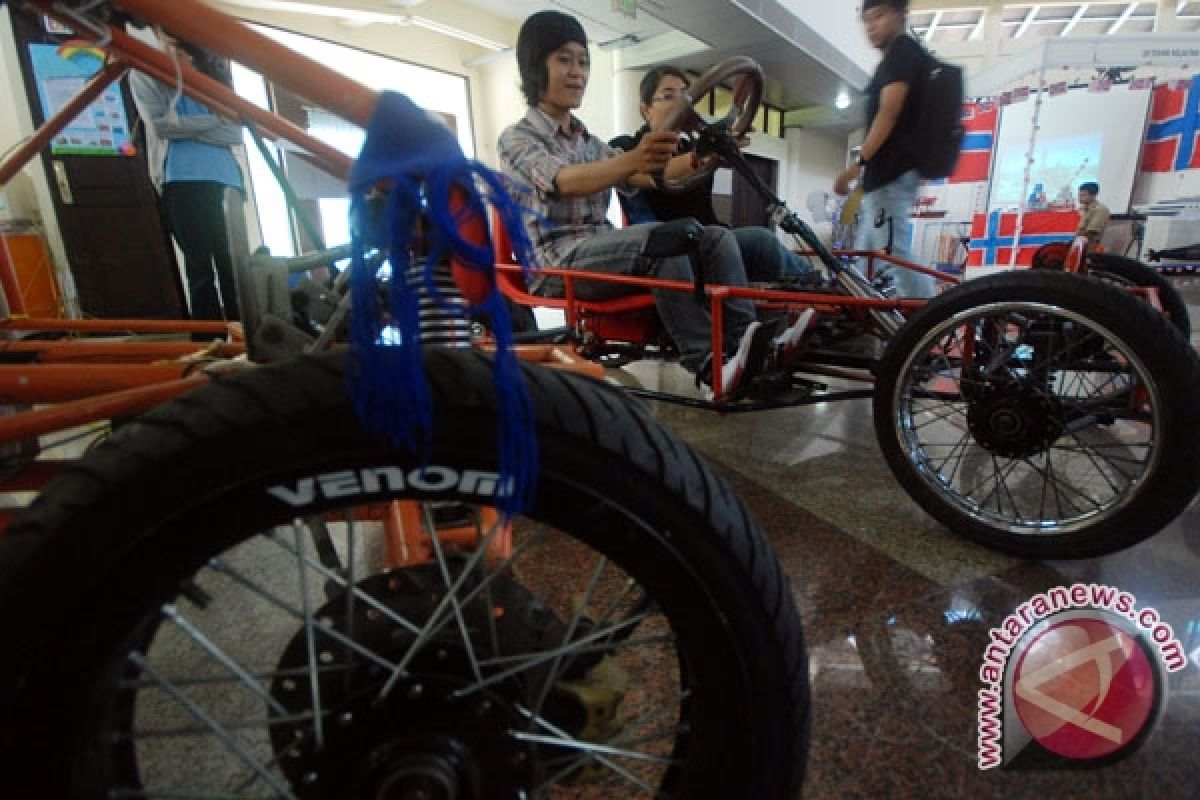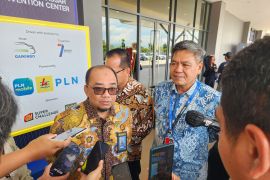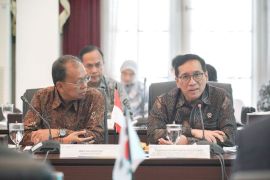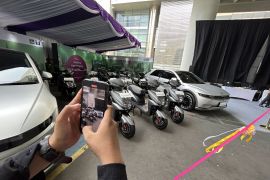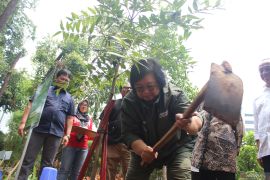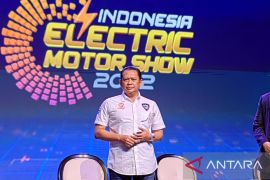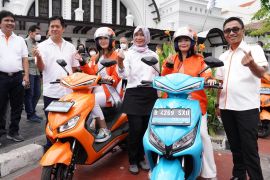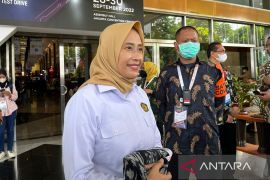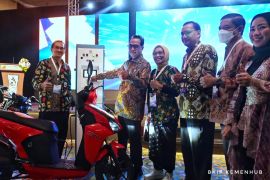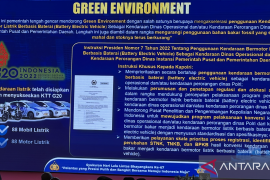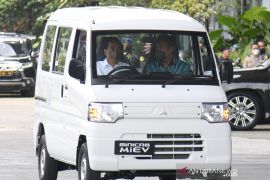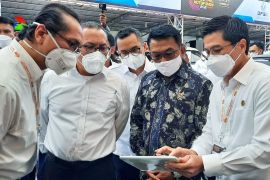Besides this, the country believes that electric-based vehicles can lower air pollution, especially in Jakarta, categorized as one of the polluted cities in the world and infamous for its massive traffic jams due to carbon emissions from motor vehicles, among other things.
To expedite the materialization of the EV industry and attract investors, President Joko Widodo (Jokowi) had signed Presidential Regulation No. 55 of 2019 on the acceleration of battery-operated vehicles for road transportation in early August 2019.
Development of the domestic electric vehicle industry will be accelerated in accordance with the regulation effective as of August 12, 2019. Furthermore, it encourages optimization of local content to increase competitiveness, incentives, charging station infrastructure development, and special electricity tariffs for battery charging, as well as environmental preservation.
The regulation also pushes for energy efficiency, security, and conservation in the transportation sector, clean energy usage, air quality improvement, and the realization of Indonesia’s commitment to lowering greenhouse gas emissions.
"We know that 60 percent of the key to electric cars is the batteries, and we have the components to make them (such as) cobalt and manganese in our country," Jokowi noted in a statement posted on setkab.go.id.
Most electric cars available in the market today were some 40 percent more expensive than fossil-fueled cars, he pointed out.
Hence, he was optimistic that Indonesia's ubiquitous resources of materials required for making batteries would help push down prices, thereby creating greater demand for EVs.
Jokowi believed that Indonesia is a strategic place for EV businesses to start, and the country is capable of designing an affordable and competitive electric car industry.
Sharing the president's optimism, Coordinating Minister for Maritime Affairs Luhut Binsar Pandjaitan was also confident about Indonesia becoming part of the global supply chain in the electric car industry in the subsequent five years.
"I am optimistic that Indonesia would become part of the global supply chain in the next five years. As much as 70 percent of the raw materials required for the production of lithium batteries are produced in Indonesia. It also has abundant reserves of rubber and tin," Pandjaitan noted in a statement recently.
As the biggest producer in the mining sector, he believes Indonesia should have the power to determine the price of the commodity.
According to Pandjaitan, South Korea's LG Chemical is contemplating on building a facility to produce lithium batteries in Indonesia as a precautionary measure against the country's plan to ban nickel ore exports from January 2020.
He believed that LG Chemical's intent to build the facility in Indonesia will support the government's plan to develop electric cars.
Besides this, PT Toyota Motor Manufacturing Indonesia (TMMIN) has expressed readiness to start battery electric vehicle (BEV) production at its factory in Karawang, West Java.
"It is a global trend. If we do not join it, we will not be able to export," TMMIN president director Warih Andang Tjahjono stated in Tokyo on Oct 28, 2019.
TMMIN is committed to supporting the government's target for the share of electric vehicle output to reach 20 percent of Indonesia's total car production by 2025.
The Ministry of Industry had earlier targeted investment in the battery industry for electric vehicles in the country.
One of the important aspects in accelerating the production of the electric vehicle industry is the preparation of supporting industries, such as power control units (PCU), electric motors, and batteries, then Minister of Industry Airlangga Hartarto stated.
Based on data, increasing investment in Indonesia for the industrial sector that will produce electric vehicle batteries only needs one additional stage, such as investment in the battery cell industry.
Other investments in mine concentrations, refinery, and electrochemical production are already a part of the Morowali Industrial Zone (IMIP) in Central Sulawesi.
In the meantime, the National Energy Council (DEN) has urged offices to set up charging stations for electric vehicles.
Electric vehicles can lower air pollution, fossil fuel consumption, and oil imports, DEN Secretary General Djoko Siswanto noted in a statement on Sept 30, 2019.
"The rationale behind using electric vehicles is to realize a cleaner environment, curb air pollution, curtail fossil oil consumption, and lessen imports. DEN urges all electric car producers to begin production of the vehicles now," he remarked.
To support the initiative to use electric vehicles, every office should provide electric sockets or public electric vehicle charging stations (SPKLUs) at parking lots for charging batteries.
"Every office is advised to build electric sockets at motorcycle parking lots. For motorbikes, charging a vehicle battery at home or office is sufficient. Each takes around four hours to charge and can suffice for five day trips from home to office and vice versa," he explained.
State-owned electricity company PT PLN had earlier affirmed its support to the development of Electric Vehicle Charging Stations (SPKLU) following the issuance of Presidential Decree No. 5 of 2019.
"We will facilitate all parties keen on developing electric vehicles," PLN Acting President Director Sripeni Inten Cahyani stated, adding that the company will offer two business schemes: Company Owned Company Operated, or COCO, and Partner Owned Partner Operated, or POPO.
Furthermore, PT PLN will offer a 75-percent discount for electric motorcycle owners and free charge for electric car users to augment power capacity, so they will have sufficient electricity to charge their vehicles at home.
The Agency for Technology Assessment and Application (BPPT) had earlier echoed that electric vehicles would pick up steam in Indonesia, with more charging stations being set up nationwide.
The agency held the Indonesia Electric Motor Show (IEMS) 2019 on Sept 4-7 in Jakarta to promote the use of electric vehicles in the country. Related news: Toyota Indonesia set to produce battery electric vehicles in Karawang
Related news: DEN urges offices to furnish electric vehicle charging stations
EDITED BY INE
Editor: Suharto
Copyright © ANTARA 2019
